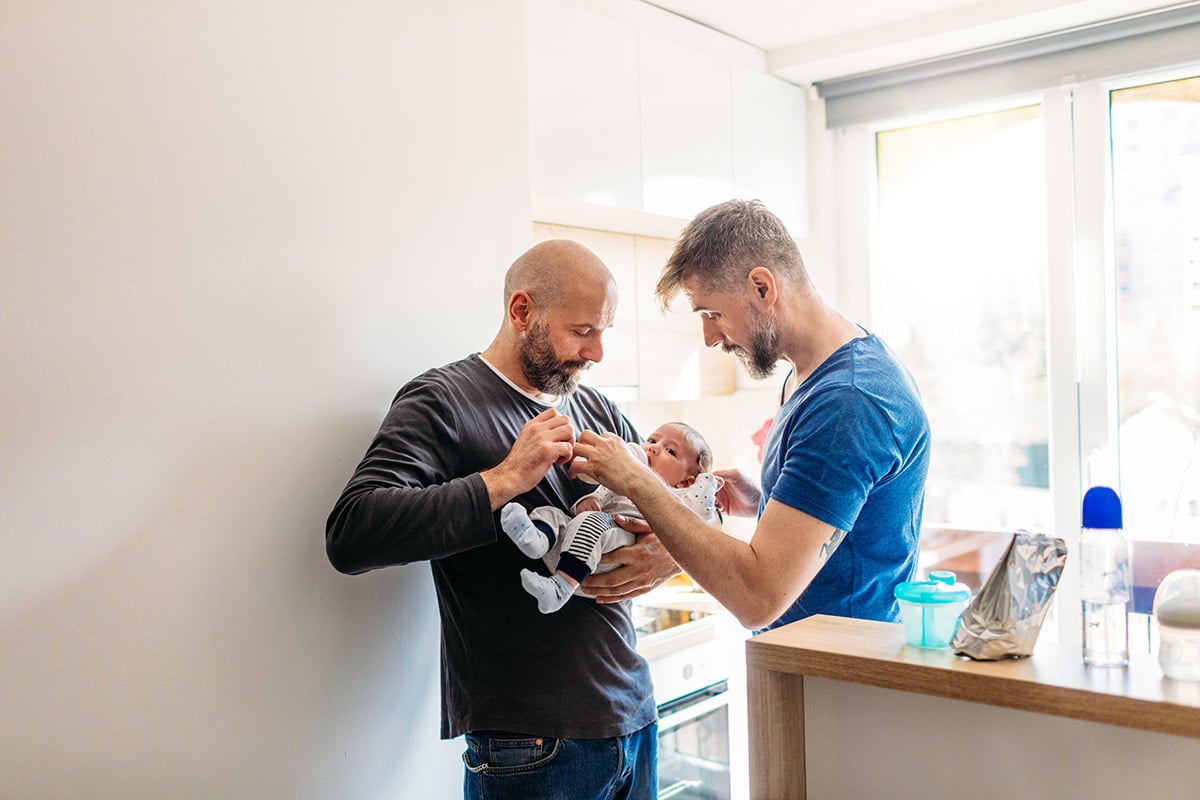Happy Pride! How LGBTQ+ Families Are Created

Here at Aspire Fertility, LGBTQ+ family building is important all throughout the year. The month of June, which commemorates the birth of the Gay Pride movement, gives us a special opportunity to celebrate LGBTQ+ families. It wasn’t so long ago that the idea of a same-sex couple having a biological child seemed impossible. Today, thanks to assisted reproductive technology (ART), we are able to give the gift of family to LGBTQ+ couples and single parents-to-be.
Third-party reproduction in particular plays a key role in the creation of an LGBTQ+ family. Although everyone’s path to parenthood will be unique, the following are the most common ways that same-sex couples have children.
Family Building Options for Lesbians
For lesbian couples who want to have a child, the primary third-party reproduction method that they require is donor sperm. If there are other fertility issues at play, they may also require an egg donor or a surrogate, but this is less likely because two women are involved. The sperm donor can be someone they know or an anonymous individual via a sperm bank.
Lesbian couples have several options for how to conceive with the donated sperm, including:
- Intrauterine insemination (IUI), where the sperm is placed directly into the recipient’s uterus
- In vitro fertilization (IVF), where an egg is retrieved from the ovaries and fertilized in a lab, and the ensuing embryo is implanted into the recipient’s uterus
Lesbian couples also have the option of using a technique known as reciprocal IVF, which allows one partner to provide the eggs and the other to carry and give birth to the baby.
Family Building Options for Gay Men
Same-sex male couples require the use of an egg donor and a gestational surrogate in order to have a child. The process typically begins with the couple deciding which partner will provide the sperm. At this time, you should also be thinking about whether or not you want to work with a known or an anonymous donor. While some people prefer to use eggs from a friend or family member, it’s more common for couples to use an anonymous donor.
You can find an egg donor through an agency or choose a fertility clinic with its own egg donor database. The egg donor profiles in the database consist of personal details about each donor, such as physical description, education level, and photos. While you choose an egg donor, you will also have to be matched with a gestational surrogate. Once all the details are squared away, your fertility clinic will coordinate an IVF treatment cycle.
Celebrating LGBTQ+ Families
At Aspire, we celebrate and support LGBTQ+ families all year long, and we are proud to offer fertility options to LGBTQ+ families of all kinds. To learn more about LGBTQ+ family building, contact Aspire Fertility today.


















